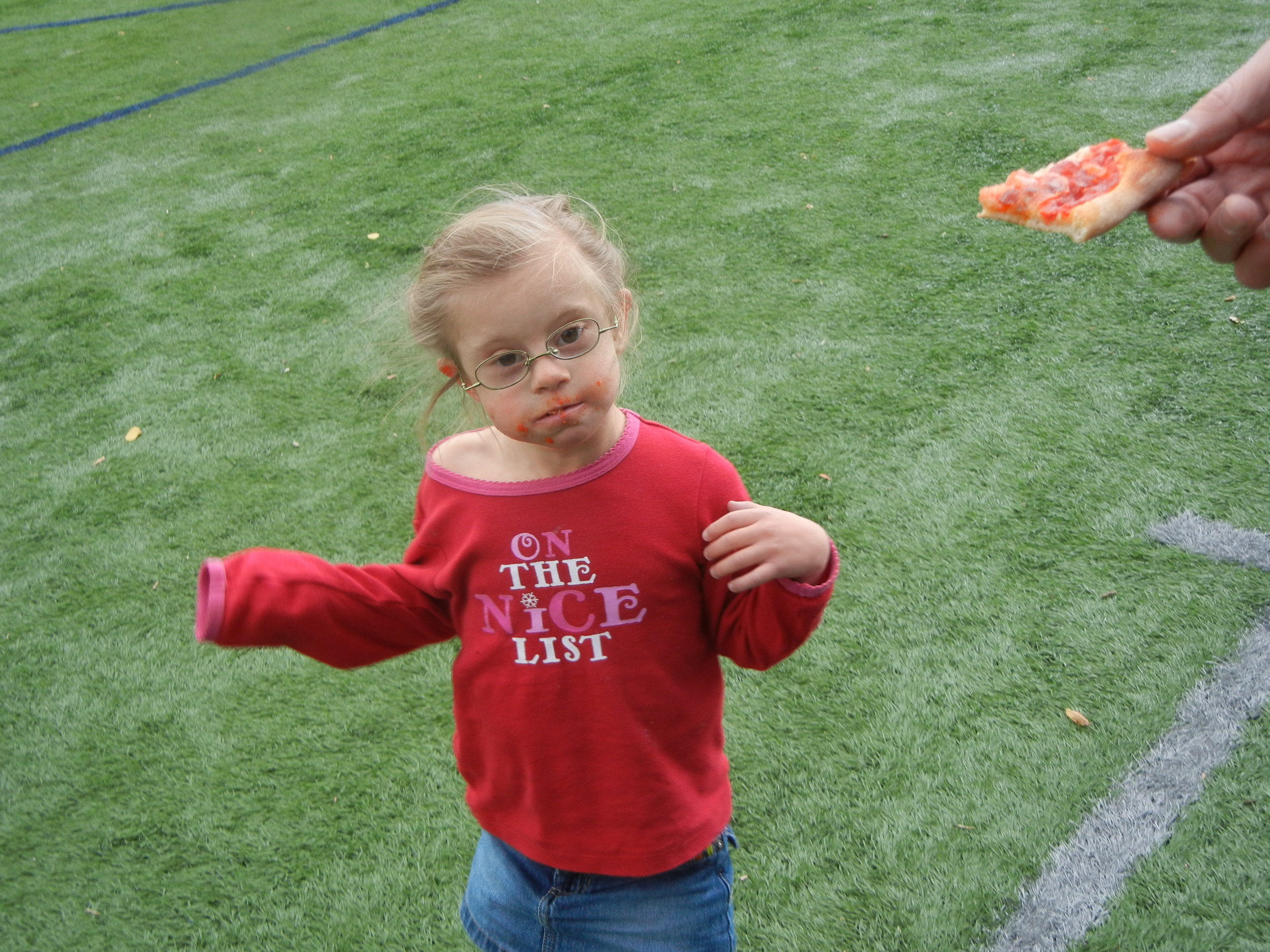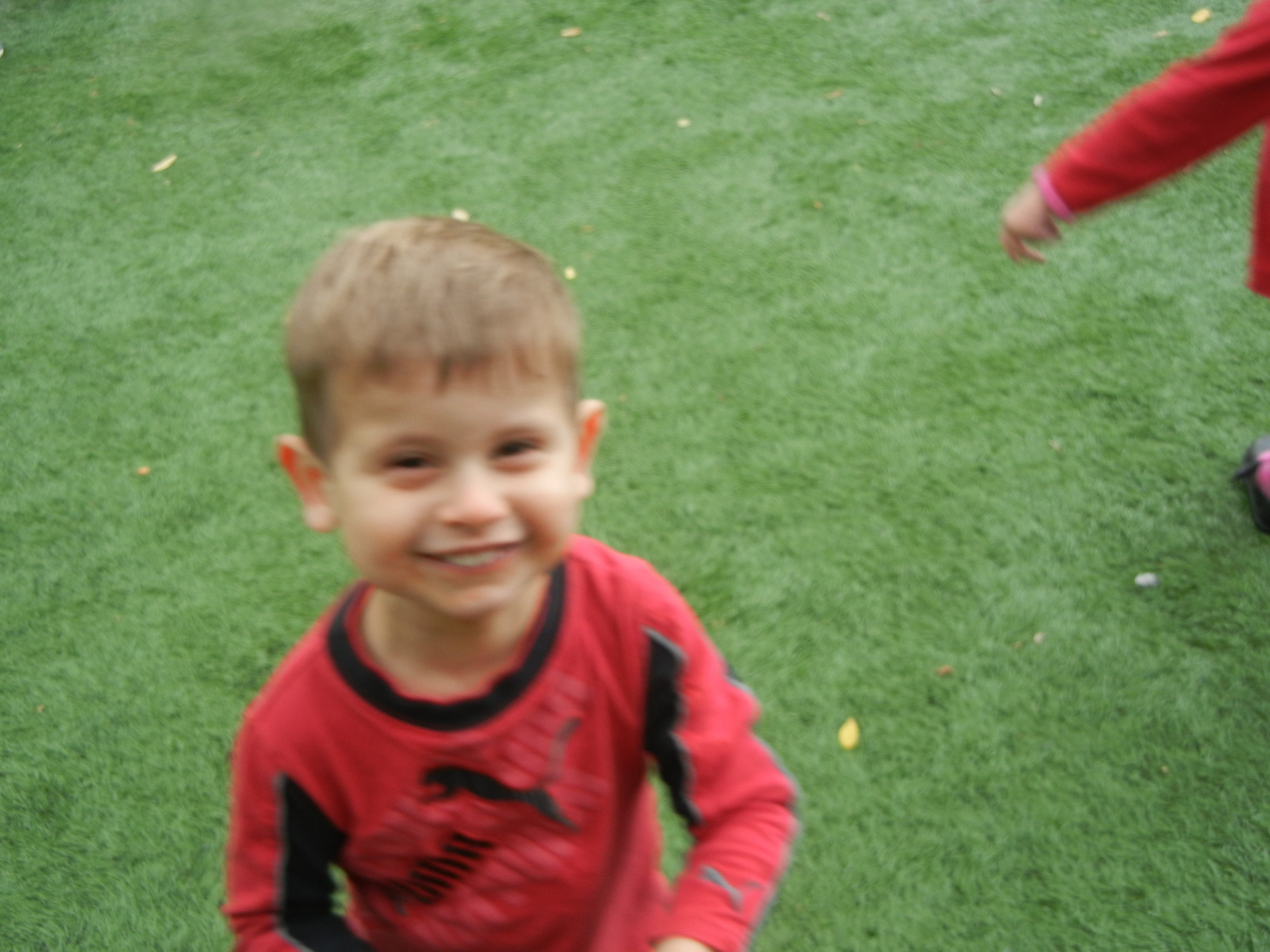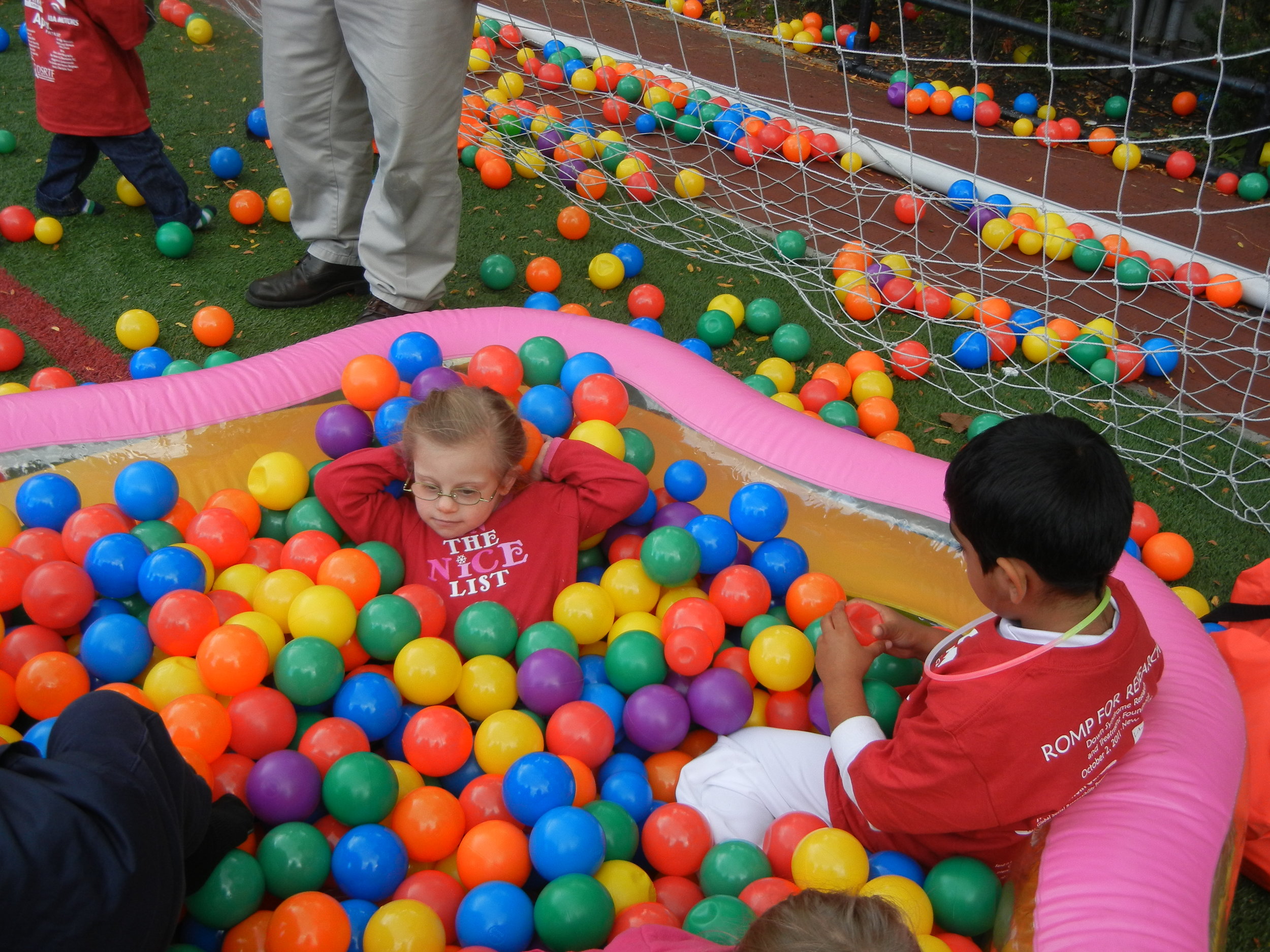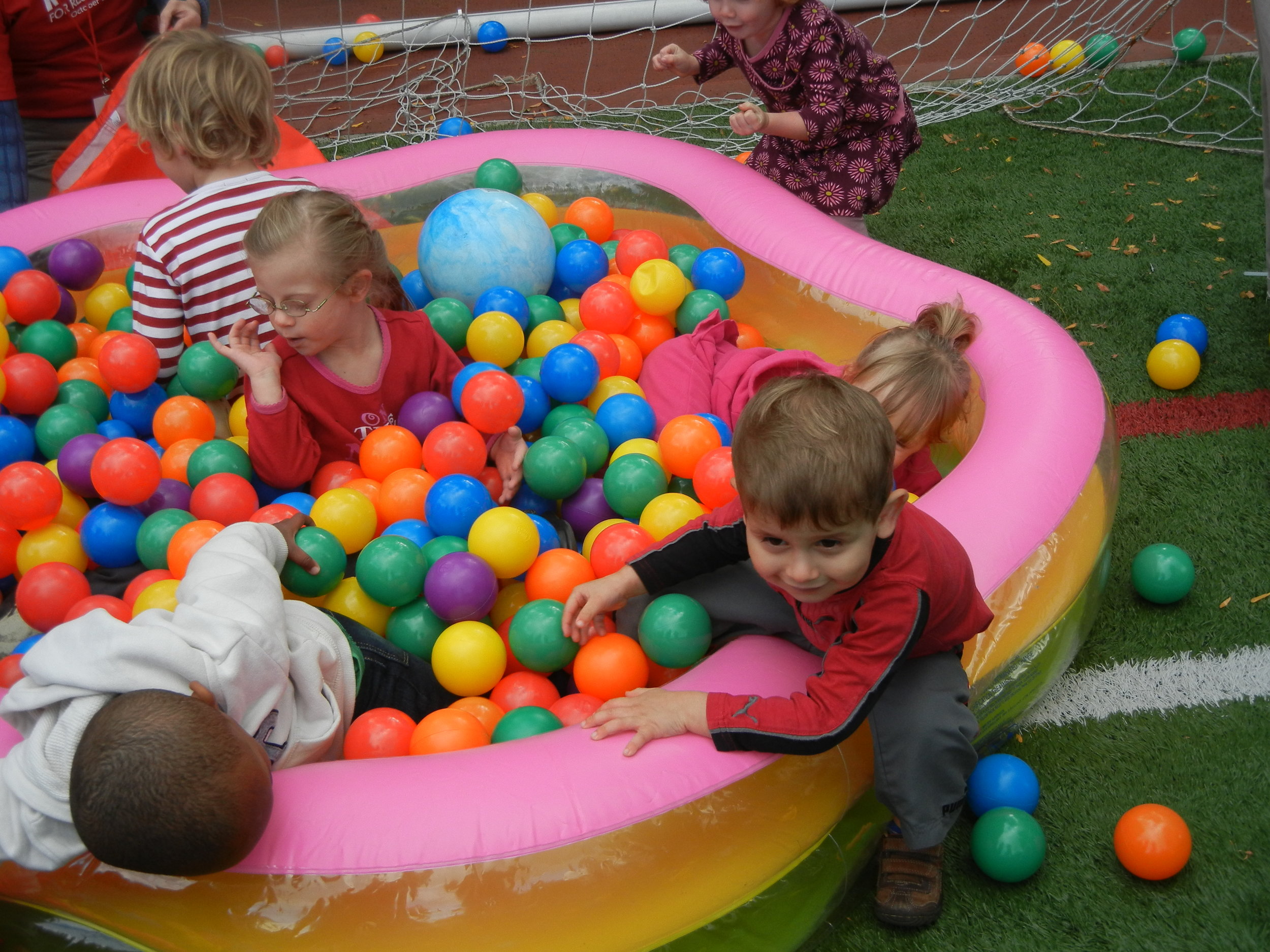Romp Around the World
We spent Sunday afternoon in Amsterdam. (I’m speaking metaphorically of course, and in a few days I’ll stop with the Holland/Italy/Iceland analogies. But right now it's a coping mechanism, so bear with me.)
We attended the Romp for Research, a fundraiser to raise money for Down Syndrome cognition research. It had been on the calendar for weeks, but when I woke up Sunday morning it was the last thing I felt like doing. While Jamie and I are feeling much better about Geoffrey’s diagnosis, we’re still processing a lot, and this past week I’ve had many afternoons when I’ve had to slip into the bathroom so the kids can’t see me in the midst of a crying jag.
We were about to walk out the door when I realized Johanna had pulled her shoes off. Jamie snapped at me—a comment fairly innocuous like “why couldn’t you have realized this earlier” and something in me just broke and the next thing I knew I was curled up on a heap on the floor, crying. Teddy ran over to me in a panic. “Mommy? Mommy” he kept asking anxiously. Then he started bawling.
“Will you stop it?” Jamie hissed at me. “Not in front of them.” And then, “why are you getting so upset over all this? It’s not such a big deal.”
I knew what he meant, of course. Compared to some of the issues we’ve had to deal with with Jo Jo, Geoffrey’s vision loss is not such a big deal. We have talked to plenty of people over the last few days, all with amazing stories of individuals with albinism who grow up to be computer geniuses or Ivy League university professors or drive cars at 150 miles around a racetrack even though they’re legally blind (okay, I’ll admit, that last bit of information freaked me out).
But it’s just one more setback, one more roadblock on a street that seems these days to be under permanent construction. My father’s cancer has returned and he’s now undergoing grueling radiation and chemotherapy. Jamie’s father is in the hospital recovering from a brutal spinal surgery. We’ve both just been through so frigging much.
The next thing I knew we were screaming at each other and Johanna and Teddy were looking back and forth at the two of us with pale, scared faces. Then we both broke down, and collapsed onto each other. In the midst of the kissing and hugging and the “I love yous” I realized that I finally had my partner back. The man I married five years ago, my soul mate and the one I adore more than anything. We’ve shut each other out, recently, with all the drama going on. We’ve had to make so much time for everyone else in our lives we forgot to make time for each other.
We won’t lose that, now. I feel confident of that.
I still didn’t want to go to the Romp. As crazy as it may sound, I wasn’t sure that I wanted to go to an event where I would be reminded everywhere I turned that my daughter had Down Syndrome. When we’re at home, she’s just Jo Jo, a typical three year old flitting around the house dancing with her scarves. I craved an afternoon with just us, our family, where we wouldn’t have to think about Holland or Iceland or any other foreign country but just the five of us, playing on the swings and chasing the dog.
But everyone was dressed and ready, so we went.
It turned out to be absolutely the right decision.
The Romp was at Asphalt Green, in Manhattan, on a large playing field filled with families. Some of the parents there had kids with Down Syndrome, some were just there to support friends. There was a bounce castle and a baseball game and tons of music so Jo Jo could twirl around the grass pretending to sing along to Katy Perry.
Sometimes I feel uncomfortable around other parents who have children with Down Syndrome. It’s not that I don’t like them—I do—but it’s just that we come from such different backgrounds. Many of the mothers are much more religious than I am. They talk often about faith, and how a divine power sent them their children, and when something bad happens they talk about prayer and belief in God and how everything happens for a reason. I just don’t feel the same way. I’m agnostic, for one, and I don’t believe God sent me Johanna, or Teddy, or Geoffrey, because he was trying to tell me something. I think at the end of the day it just boils down to which way the genetic dice rolls.
And while most of the time I’m okay with the fact that Jo Jo has Down Syndrome, there are days when I wish she didn’t have it. That I could have my Jo Jo, without her extra chromosome. That’s definitely not an easy thing to admit.
But wandering around the field with my three kids, talking to other parents, and watching Teddy and Jo Jo play with the other children, I felt at home. Comfortable. I was with a group of people who seemed to feel the exact same way I did, that they loved their children beyond belief, but were committed to finding treatments not because they wanted to “cure” them or because they viewed Down Syndrome as a disease, but because, like Jamie and I, they simply want a better life for their children. And as I watched Jo Jo pirouette around the field, I realized quite simply that she wouldn’t be the Jo Jo I adore if she didn’t have 47 chromosomes.
While we were there we ran into my friend Tricia, who has a five year old son, Ryan, with Down Syndrome. Tricia had emailed me a few days earlier, about one of her sister’s best friends from college who has albinism, but I hadn’t really processed it in the haze of everything else going on. But as fate would have it, her sister Marianne was there, and we spent some time talking about her friend, a computer whiz who recently launched his own mega successful company. “He’s one of the brightest guys I know,” she told me. “He can do anything he sets his mind to.”
It was just another success story of many I’ve been hearing recently about individuals with albinism. Somehow, the vision loss just doesn’t seem to stop them from doing anything and everything they want to do.
As I watched Jo Jo and Teddy slide around in a pile of brightly colored balls,I suddenly felt optimistic again. Optimistic that twenty years from now, there will be drug treatments that not only help my daughter reach her cognitive potential, but also help stave off debilitating afflictions that affect some people with Down Syndrome later in life, such as Alzheimer’s. Optimistic that in twenty years, Geoffrey will be a junior in college and excelling in anything he sets his mind to, whether it’s European history or rowing crew. Optimism that Teddy will gain so much from having two siblings with unique needs that in two decades he’ll decide to pursue a career where he makes positive change in the world.
And, ultimately, optimism that I can mother three small children, all of whom have individual demanding needs, and do a halfway decent job of it.
Suddenly Geoffrey , who was in the Bjorn, tilted his head back so he was looking straight at me. It took me a moment to realize that he was actually making eye contact. He smiled, a huge, gurgly, babyish smile that made his eyes crinkle up.
It was a moment I’d been waiting for, for so long, that moment when my baby would look straight at me and smile because he was seeing his mother, and it was happening right here at the Romp for Research.
As skeptical as I am about faith, I guess I have to take that as some kind of a divine sign.
I








